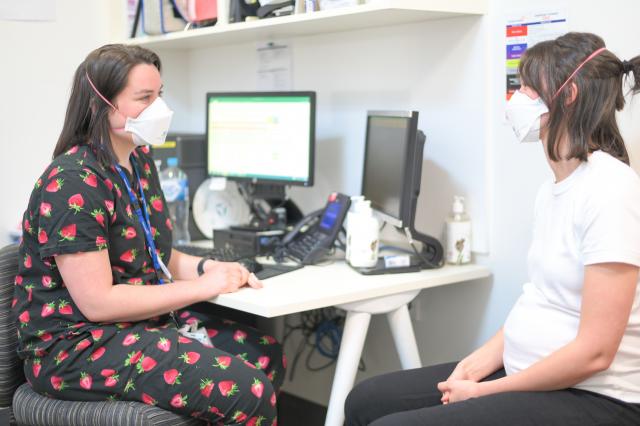
By Parker McKenzie
The most likely time for a woman to develop a mental health problem is during pregnancy and In the first year after the baby is born.
That’s why Eastern Health has become one of the first organisations in Australia to use the iCOPE application, developed by the Centre of Perinatal Excellence (COPE) to help screen and identify mothers at risk of perinatal depression and anxiety, at the Angliss Hospital in Upper Ferntree Gully and Yarra Valley Health in Healesville.
Founder and Executive Director of COPE Dr Nicole Highet said the registered charity is the peak body for perinatal and postnatal mental health in Australia.
“We’re the developer of the national guidelines and looking really our focus is on how we can use innovation and technology to make a more sustainable way to delivering best practice and make sure we’re identifying women early,” she said.
“Part of that work for me was initially getting a very small grant from a donor to develop the iCOPE screening platform. From there, we got a larger grant to trial in a single Maternal and Child Health Clinic in Melbourne, and then we got money to roll it out across two different municipalities in maternal and child health.
“From the results of that we then took it to the prime minister at the time, Scott Morrison, who committed to making this available across all public maternity hospitals, and maternal and child health clinics.”
The digital mental health screening program works through a link sent to a mobile phone just prior to an appointment. The participant answers a series of questions in relation to how they are feeling and to identify behaviours or past experiences that may be an indicator of risk of mental health issues.
Dr Highet said the ability to answer the questions on a mobile device prior to an appointment was an innovation that was made during the Covid pandemic because people weren’t able to attend appointments.
“We found that that they gave women more privacy and more confidence to answer questions on their own device,” she said.
“We’re able to identify someone who is at risk and what supports can be put in place early through that screening process.”
If the person using the program is indicated to be at risk, they are referred for a mental health assessment with their GP or a hospital.
Dr Highet said the screening itself is an education process.
“It gets people to self-reflect when they’re answering those questions, not only about how they’re feeling now but also about reflecting on things in relation to their past or their family history or personal history and just being aware that those things might increase their vulnerability,” she said.
“From a screening, we also link people to what we have a new app that provides women with information and education for each week of their pregnancy and the first year after having a baby. And that’s downloadable from the App Store or Google Play.”
For more information on the iCOPE digital screening program, visit www.cope.org.au/health-professionals/icope-digital-screening/






